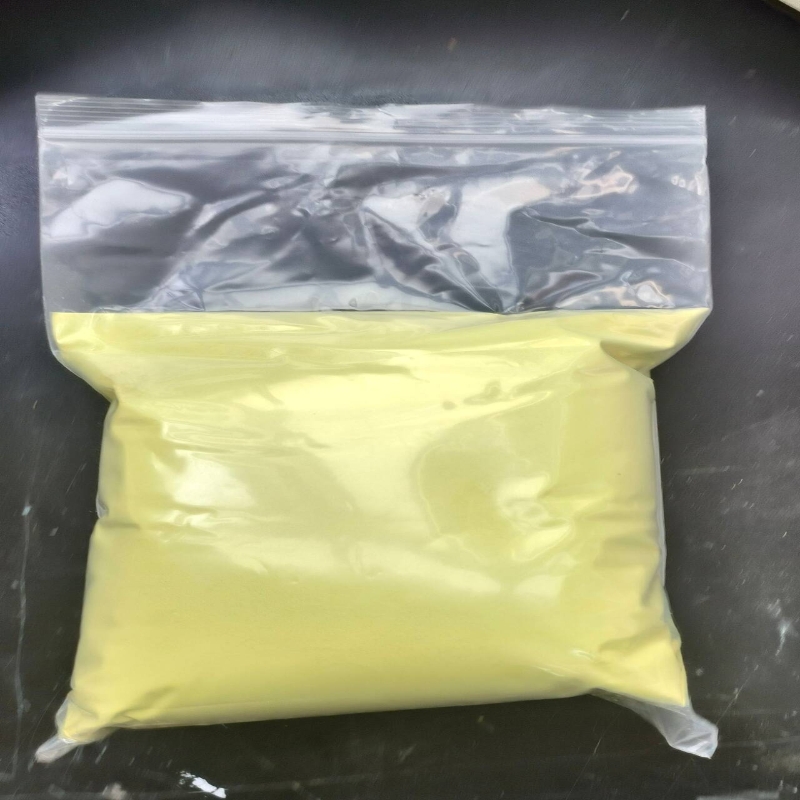-
Categories
-
Pharmaceutical Intermediates
-
Active Pharmaceutical Ingredients
-
Food Additives
- Industrial Coatings
- Agrochemicals
- Dyes and Pigments
- Surfactant
- Flavors and Fragrances
- Chemical Reagents
- Catalyst and Auxiliary
- Natural Products
- Inorganic Chemistry
-
Organic Chemistry
-
Biochemical Engineering
- Analytical Chemistry
- Cosmetic Ingredient
-
Pharmaceutical Intermediates
Promotion
ECHEMI Mall
Wholesale
Weekly Price
Exhibition
News
-
Trade Service
"Medical tourism" is a potential "wind mouth" for India, which is growing rapidly in the pharmaceutical industry. Overall, the prices of Indian hospitals are more reasonable than those in Europe and the United States, and compared with third world countries that lack medical care and medicines, the level of medical care is relatively high and medical facilities are relatively advanced. This provides a good soil for the development of "medical tourism" in India.
the Economic Times of India, India's "medical tourism" sector had reached $3bn as of November 2015 and is expected to continue to grow. The industry is expected to contribute about $7 billion to $8 billion to India's GDP by 2020.
2012-2014, an average of about 200,000 medical tourists visited India each year. Of these, Bangladesh and Afghanistan, which are adjacent to India and have a low level of medical development, have the largest number of patients, accounting for about 34 per cent, while Russia and other CIS countries have the second largest number, at about 30 per cent. Many working-class people in Europe and the United States can save money and wait time because of their low proportion of health insurance, more expensive medical care, and India's english-speaking, language-free language barriers, and their willingness to travel to India for medical treatment. The Japan Economic News reported in March 2016 that there were 918,000 doctors in India (about 60 per cent of whom were internationally qualified).
40 more general private hospitals will open in the next three years. From dental implants to cosmetic surgery, liver transplants to heart-bridges, quality health care is attracting more and more patients to India.the advantages of "medical tourism" in India come from?
is the support of India's strong pharmaceutical industry for "medical tourism". India has long been known as the "world's pharmacy" and its generics production is a world leader. The price of hepatitis C generics, which went on sale in India in September 2015, is only 1 percent of the price of similar drugs in Europe and the United States, setting off a buying spree among domestic patients. India's health services have also benefited, built up huge price advantages. According to BusinessWorld, the same heart-bridge operations cost $144,000, $20,000 and $14,000 in the US, Mexico and Singapore, respectively, while in India they cost $8,500.
, India's "medical tourism" industry has received strong government support. In terms of visas, since 2015, the Indian government has comprehensively simplified visa procedures and gradually set up a shortcut window for South Asian countries with a high number of patients. The visa approval process has also been greatly accelerated, with patients in South Asia able to obtain visas within three days of submitting relevant materials and critically ill patients within the same day. In addition, at the World Medical Tourism Congress in September 2015, India announced the establishment of a dedicated Medical Tourism Board and will raise about 20 million rupees (about $300,000) to invest in the medical tourism industry. Finally, in terms of airfares, the Indian government has also introduced two subsidies. Foreign patients can reduce the financial burden of travel through air ticket coupons.the situation of private health services in India?
medical tourism in India has entered a period of rapid development. Currently, 21 private healthcare providers have passed the Joint Health Service (JCI) qualification review. Below, we will highlight three Indian medical tourism leaders:Apollo Apollo Hospital
Apollo Hospital is one of the largest private health services in India and the first hospital in India to pass JCI, with a total market value of approximately Rs178.156 billion. In 1983, Apollo Hospital was established in Chennai, India's "medical tourism capital". At its inception, it was a small 150-bed clinic. After decades of development, Apollo Hospital has 64 hospitals and 9,215 beds in India. The company has gradually begun overseas expansion, in Kuwait, Qatar and other places to set up operations. In terms of medical tourism, the number of foreign patients treated at Apollo hospitals reached about 65,000 in 2013.
hospital is one of the largest private health services in India and the first in India to pass JCI, with a market capitalisation of about Rs178.156 billion. In 1983, Apollo Hospital was established in Chennai, India's "medical tourism capital". At its inception, it was a small 150-bed clinic. After decades of development, Apollo Hospital has 64 hospitals and 9,215 beds in India. The company has gradually started overseas expansion, in Kuwait, Qatar and other places to set up business. In terms of medical tourism, the number of foreign patients treated in Apollo hospitals reached about 65,000 in 2013.
total revenue for the 15th to 16th fiscal years was about Rs60.9bn and has been growing by about 20 per cent over the past three years. The company made a net profit of about 3.31 billion yuan last year, with a return on net assets of about 10%. The company's current price-to-earnings ratio is more than 50 times, reflecting investors' expectations of high growth for some time to come., founded in India in 1996
and successfully listed in April 2007, is now valued at approximately Rs 1,411 million. Compared with Apollo, it is relatively small. However, in India, Dubai, Mauritius and Sri Lanka, the company also has 54 medical facilities (including projects under construction), approximately 10,000 beds and 314 diagnostic centres.
2015-2016, the company's total revenue was Rs.1,293 million and its net profit was Rs. 67.4 million, but profits have declined year-on-year since 2014. The company's current price-to-earnings ratio is only 22 times, reflecting investors' doubts about its future.Max Healthcare
Medical is headquartered in New Delhi, India, and its operations are mainly located in the Delhi metropolitan area and the surrounding punjab province. In July 2014, LifeHealthcare Group, South Africa's second-largest private healthcare provider, increased funding for Max Healthcare. After the capital increase, LifeCare.com and India's Max Group each took a 46.4 per cent stake, with the remaining 7.2 per cent majorally owned by International Financial Corporation, an investment arm of the World Bank. In the fiscal year 2014 prior to the acquisition, the company's total revenue was approximately Rs. 10,089 million. In previous years, the company's net profit had stabilized at around Rs 600m.india's medical tourism is also inevitably a problem
compared to private hospitals in Bangkok or Singapore, India has lost a lot of medical visitors because of its high air pollution and relatively poor infrastructure. India has a long history of civilization and rich cultural heritage, if the ecological environment, road communication can be improved, can fully achieve the organic combination of "medical" and "tourism", greatly enhance the attractiveness of foreign patients.
, India's legislation on medical tourism is not mature enough, especially the lack of a special medical accident law to protect consumers' rights. In the event of a dispute during treatment, the patient has little receding rights and the proceedings can take years. In order to enhance the confidence of patients visiting India, in addition to facilitating administrative matters, India should also establish more robust mechanisms at the legal level and ensure the effective implementation of the law. (Medical Focus)




![2-(Hydroxymethyl)benzo[b]thiophene](https://file.echemi.com/fileManage/upload/cas/593/e79a972f-b55d-4dc1-9113-841c417e0a89.png)


